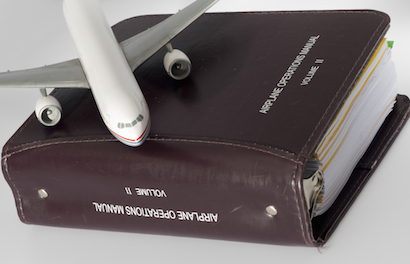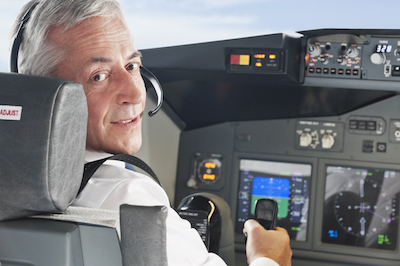My Well-Intentioned Pilot Friend
I never would have thought that a pilot could give a lesson about how to perform in a job interview, but I have a friend who proved me wrong. My well-intentioned pilot friend had flown a small plane in Mexico for a number of years. We got to talking one day, and I realized that he had a story that did just that. Teach job interview lessons.
When he first started (let’s call him Bob), he was a bit nervous. His instructor told him that his passengers would likely be more nervous than he was. Bob’s instructor taught him the importance of being a calming presence for his passengers. Bob took this counsel to heart and put a lot of thought and effort into what he could do to calm the nerves of those under his charge. Unfortunately, Bob’s efforts backfired in a lot of colossal ways, ultimately making his passengers more nervous instead of putting them at ease. When it comes to interviewing for a job, Bob’s mistakes as a pilot give us a lot of great examples of what not to do, and making your future employer nervous is probably the number one thing to avoid. Let’s take a look at some of the ways Bob was setting himself up for a crash-landing before he ever left the ground. Learning these lessons now will help you on your next big interview.
Interview Lesson #1: Instruction Manuals

Before his first flight, Bob got excited and purchased a flight instruction manual. He thought if he displayed it in the open cockpit area that the passengers would see it and feel more confident in his professionalism and appreciate his willingness to keep learning and double-checking his knowledge.
However, Bob would actually open it and read from it at the beginning of his early flights. When passengers saw Bob, pouring over his instruction manuals before takeoff, it made them antsy and fidgety, wondering if he had the knowledge and experience to actually fly the plane. It didn’t put their minds at ease to think that the pilot would need to be consulting the instruction manual to know what buttons to push and when.
So let’s break down how this applies to you on interview day. Employers appreciate someone that will admit their weaknesses and their commitment to continuing education. However, it is still important to show a level of expertise that will give the employer confidence in your abilities to get the job done. Sure, keep your manuals at your desk for future reference; but you may not want to bring them all to the interview, stack them up in front of you, and boast about all the information you have at your fingertips. On interview day, leave the manuals at home and focus on what you can bring to the table without them.
Interview Lesson #2: Too Much Talking

Bob had one passenger who flew often. She had met and flown with a dozen different pilots. One day Bob thought he would use a bit of humor with this woman. Bob started in on why he became a pilot, how he thought he might have to rethink it as a long-term career, and if he was even cut out to fly a plane. At first, the woman chuckled, respecting that he was maybe trying to show humility. She was an experienced passenger and not much phased her, but Bob continued his monologue. of 30,000 working engine parts, engine failure statistics, plane crash statistics (they don’t happen often, but they are usually fatal), and how he had recently discovered that pilots had one of the highest rates of depression and suicide. Bob was surprised when the woman decided to take a later flight with a different pilot and that they didn’t run in to each other again.
An interview can be a nerve-wracking thing even when you try to put your best foot forward. Talking too much - while it can be a sign of nervousness - can also be a red flag for employers. They begin to question if you are a good listener, if you will work well with others in a group environment and if constantly hearing your voice is something they want to put up with. In the interview, answer the questions your employer poses thoroughly, but try to be as direct as possible. If you find yourself rambling, summarize in one sentence what you were trying to say and then force yourself to stop talking. Pay special attention to the body language of your interviewers. If you are observant, you’ll be able to notice when they are getting bored and when you are talking too much.
Interview Lesson #3: Image is Everything

The local authorities had instituted a law that all pilots must wear a helmet while flying a plane. Their rationale was such that should an aircraft crash, the one person who should definitely not go unconscious should be the pilot. Of course, helmets were available to passengers as well, but Bob said that none of them ever asked for one. However, all the passengers always wanted to fly with Bob’s copilot. The back of the helmets were inscribed with the pilots’ last names. Eagle and Drowne. The passengers’ perceptions of the pilots were influenced by the image of those two last names. Who wants to ride with a pilot named Drowne?
Now, it’s obviously not Bob’s fault that his last name was Drowne. He would have much preferred a last name like “Topgun” or “Hawkeye.” And while he couldn’t have changed his last name, it just goes to show how important image is. In an interview, how you present yourself is a big deal.
Your clothing, your hair, your mannerisms, even your email address can present you in a certain way. For example, if you still use your college email address, [email protected], employers may infer a lack of professionalism. Coming to the interview in jeans and a keg-a-thon championship t-shirt may not give the best image of yourself either. It may be time to change your email address and buy some new clothes so you can dress to impress. Ask someone you trust if there is something about the impression you give that could be improved for an interview. Look up interview tricks and tips (we give a lot of them here on our site) that could help you present an image of yourself you are happy with.
In all of these examples, while Bob tried to calm the nerves of his passengers, despite his best intentions, his efforts seemed to backfire. While we can all look at Bob’s efforts as a pilot and see their merit, it doesn’t take a genius to know these things were going to blow up in his face. Don’t let your upcoming interview backfire by increasing the anxiety or tension in your interviewers. Make it your goal to calm their nerves and leave them confident in you as a professional. Follow these three interview lessons learned from Bob and both parties will be calm, cool and collected throughout the interview. Bob has learned from his mistakes and has been soaring and landing ever since. Chances are, if you learn these interview lessons from his pilot mistakes, you’ll soar through the interview like a plane and land the job like a good pilot should.


